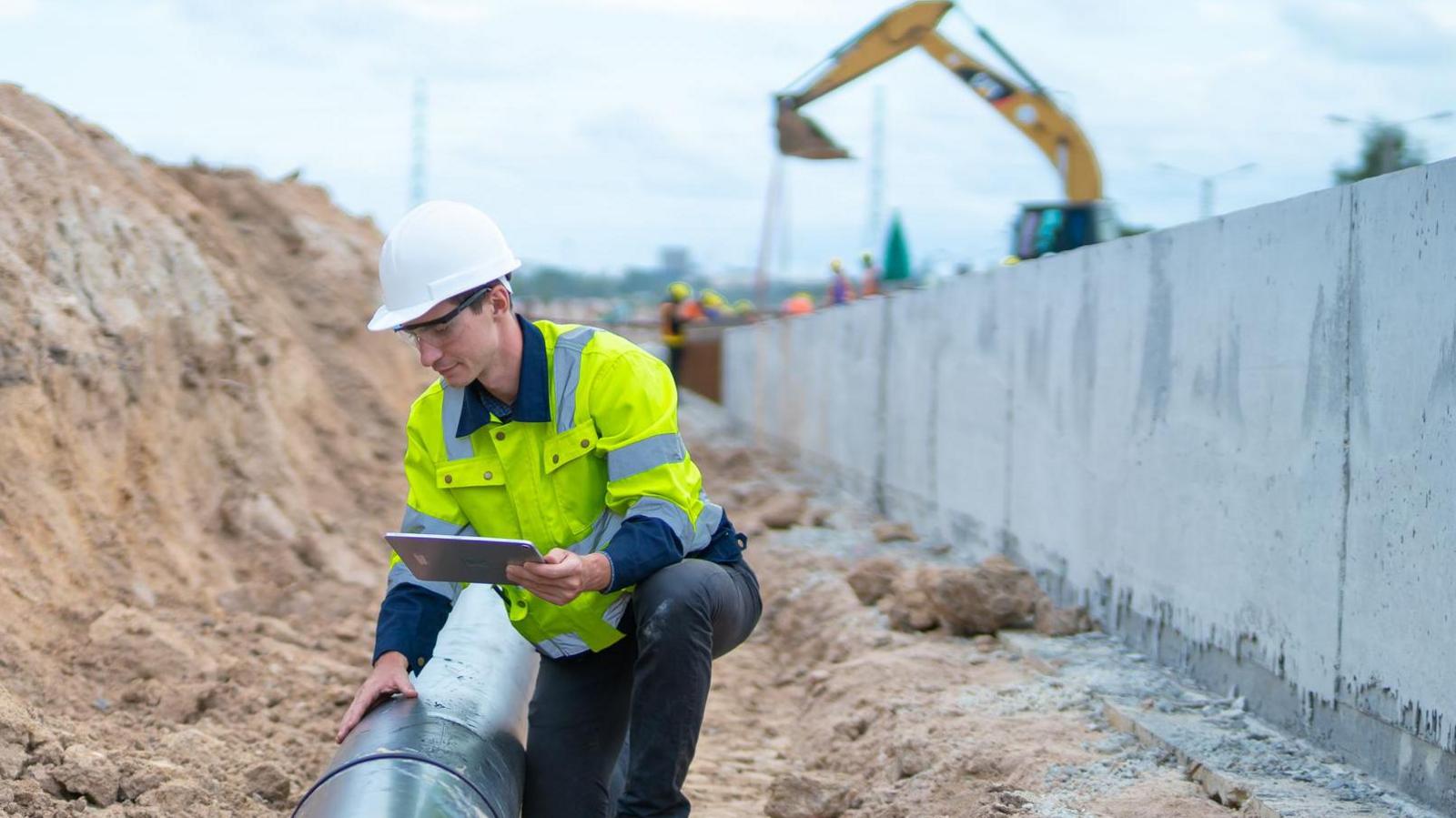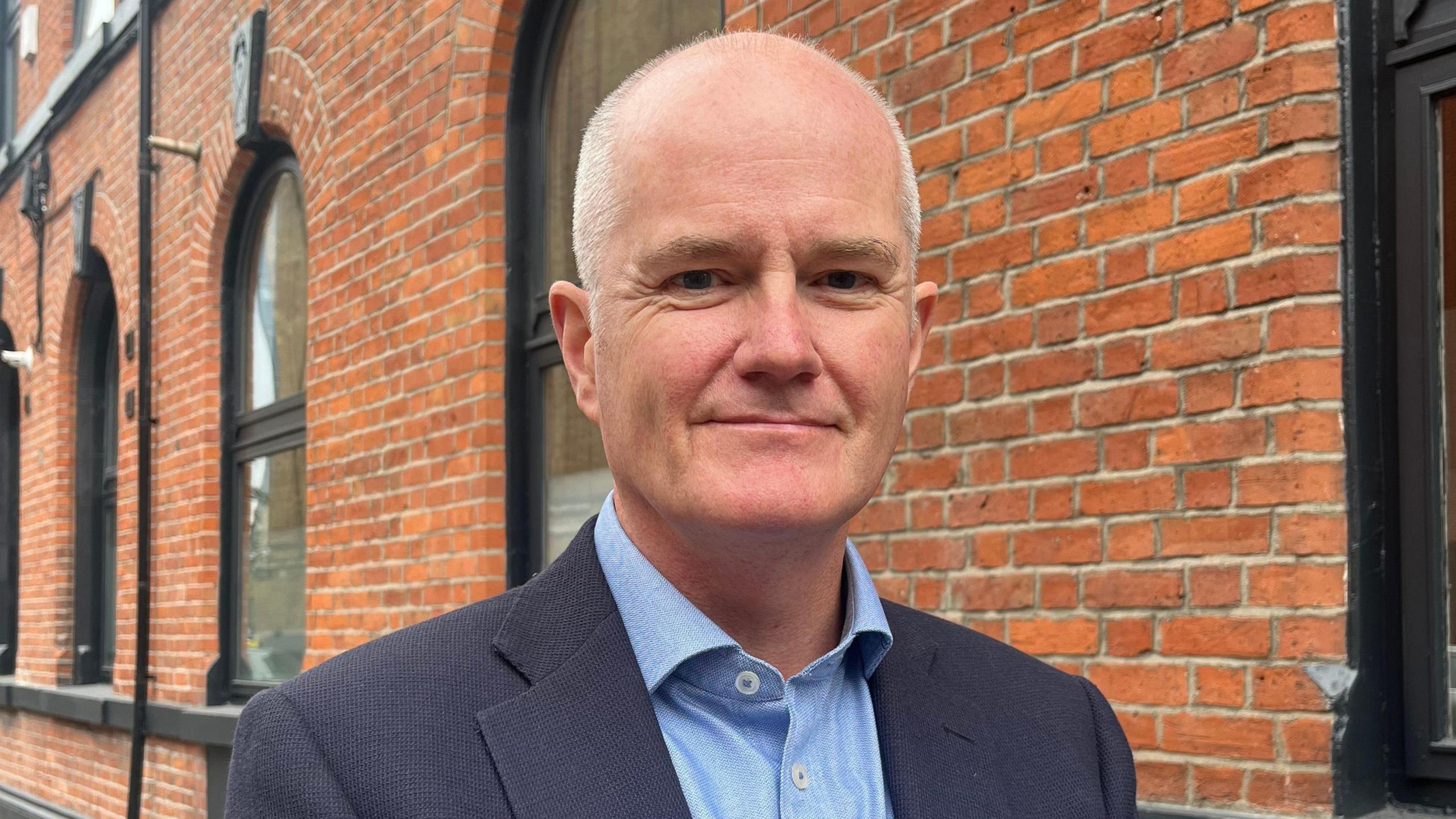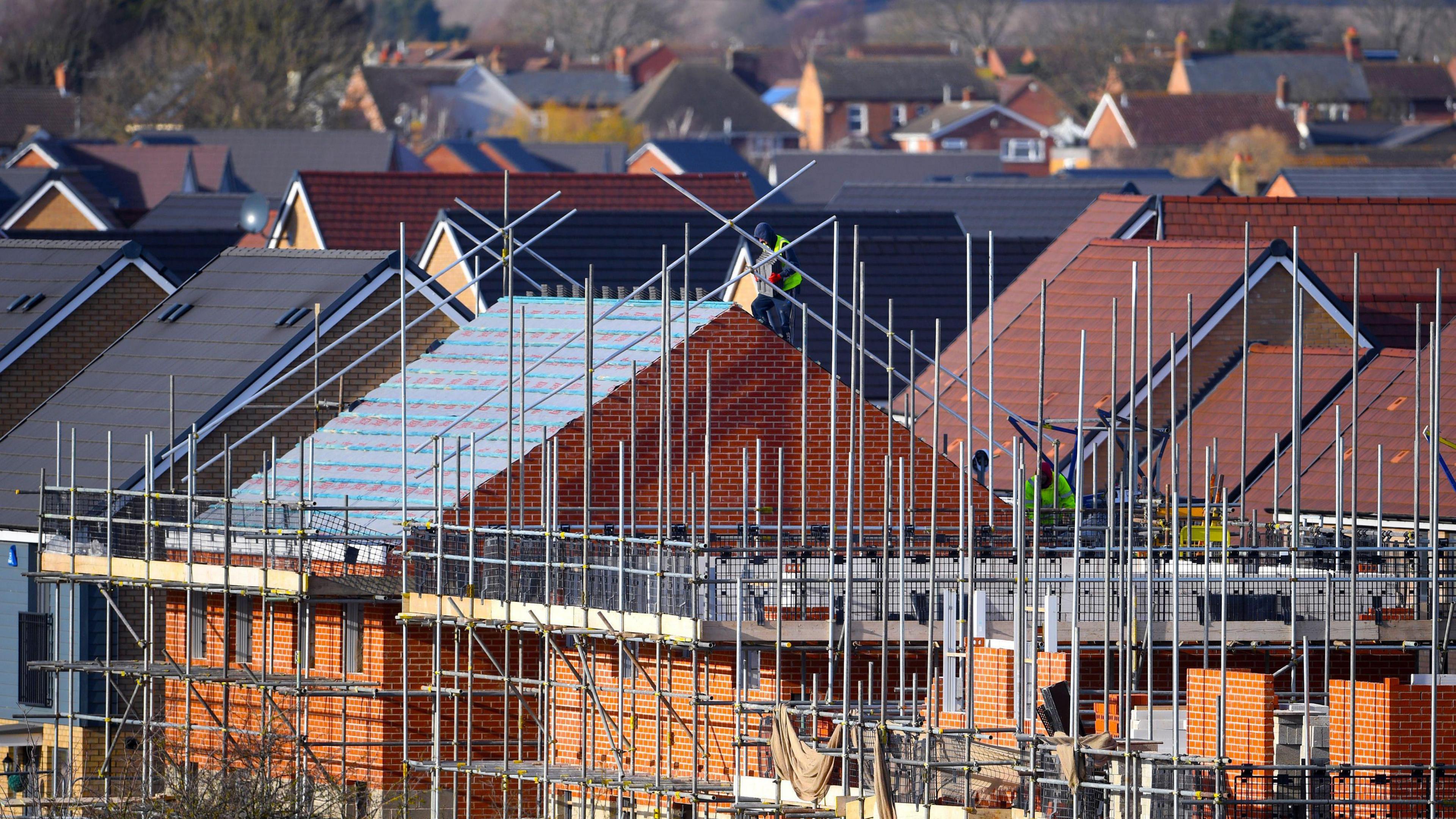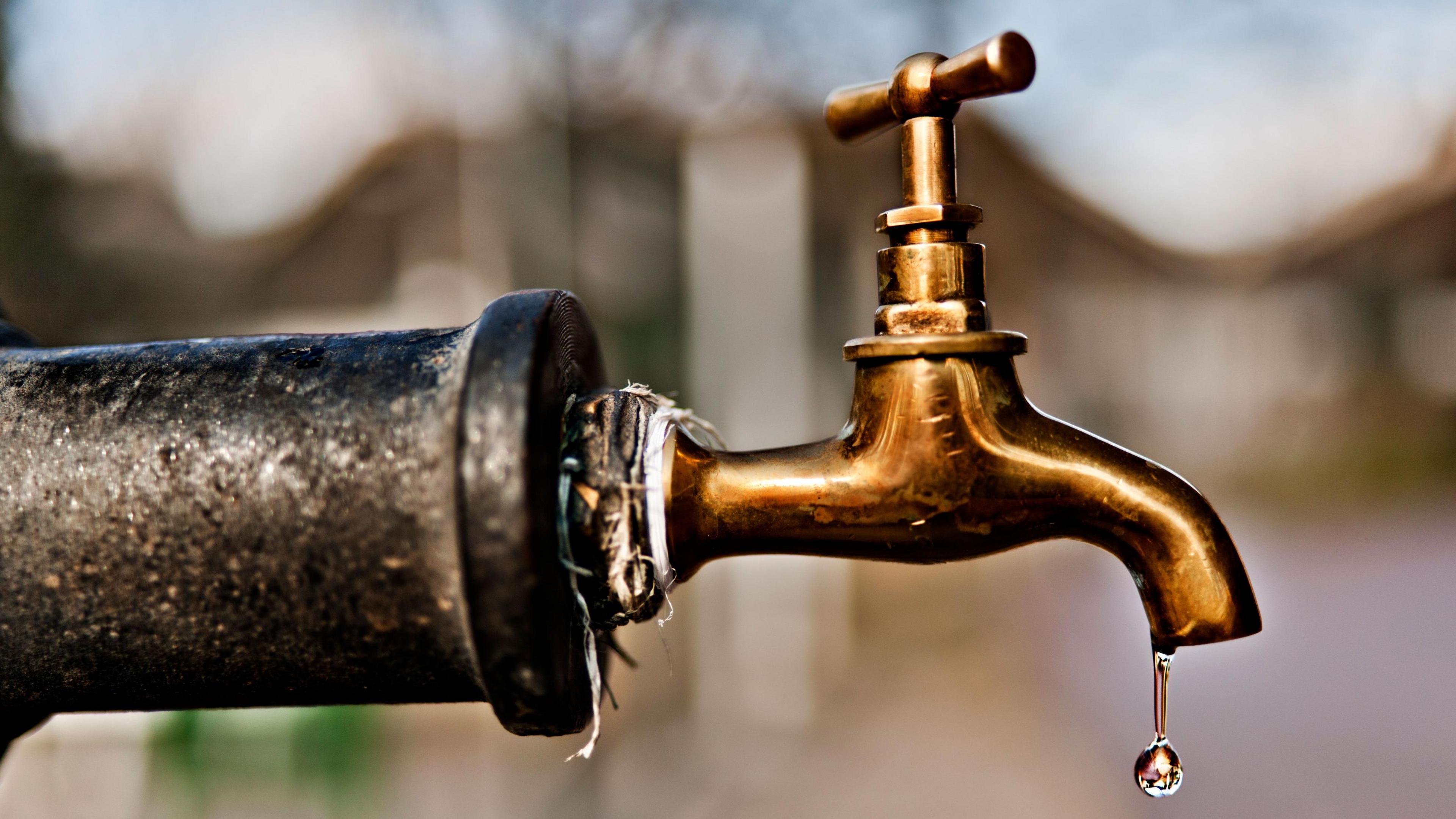NI Water funding model 'not fit for purpose'

NI Water says 19,000 applications for development cannot go ahead due to an outdated sewage network
- Published
An organisation representing construction firms in Northern Ireland has disputed the infrastructure minister's claim that Northern Ireland Water's funding model is fit for purpose.
Mark Spence, chief executive of the Construction Employers' Federation, said the utility provider was "clearly not fit for purpose" and called for an independent review into its funding.
Mr Spence reiterated a figure provided by NI Water that 19,000 applications for development cannot go ahead due to an outdated and at capacity sewage network.
The minister, John O'Dowd, said last week that NI Water "faces challenges".
However, when asked by BBC's The View if the current funding model, and the way in which NI Water is established, is "fit for purpose", he replied: "Yes."
Mr Spence said "the 50,000 people on the waiting list for a home in Northern Ireland dispute that".
"The factories which we have seen which should have been built in Northern Ireland that are going to the Republic of Ireland and Poland with their jobs would dispute that," he said.
"The schools who are trying to do special educational needs extensions and can't do them because of a lack of water infrastructure would dispute that."
Seamus Leheny, from the Northern Ireland Federation of Housing Associations, said 400 houses were in built in Londonderry in 2022 under a commitment that a sewage connection would be delivered by November 2025.
"Northern Ireland Water have now said we cannot actually give you a timeline to connect those houses," he said.
"On top of that they quoted a price of £8m for the pumping stations to facilitate that construction, that cost has now leapt to £15m."
Mr Leheny said it felt like "the goal posts are being moved".

Mark Spence is calling for an independent review of the funding model
O'Dowd has said he "doesn't recognise" the figures that suggest 19,000 developments are being held up by a lack of funding for NI Water.
"Even if NI Water was fully funded during its current budgetary period which brings it up to 2027, they would be able to connect 4,500 homes through their interventions," he said.
O'Dowd said there was "another 18,000 properties that could be connected" if developers were willing to pay a contribution towards connecting properties to water networks.
On different approaches to funding NI Water, the minister said "all alternative models that have been brought to my attention thus far involve domestic water charges, I am not introducing [them]."
'Not a small amount of money'
Mr Spence said his organisation was calling for an "independent expert-led review" into the way that Northern Ireland water is funded.
"Any reviews done to date have been done internally by the department, they're marking their own homework," he added.
"We're not predetermining the outcome of that, I fear the minister is predetermining the outcome of that review."
Mr Spence said the problem with developer contributions was that "this is not a small amount of money... you are talking millions of pounds".
"If you're only building a small number of houses, how on earth do you absorb that cost?" he said.
"You can only make that cost economically viable if you're building a huge number of houses, or and this is problematic, if you're building houses of such a cost that the very wealthiest are able to buy them."
Mr Spence warned of creating a "two-tier water system here where only the wealthiest can afford to connect".
He said that this "would be excluding social housing completely from that scenario".
"I'm sure that's not the minister's intention," he added.
The BBC has contacted the department for a response.
- Published30 August 2024

- Published22 November 2024

- Published17 November 2024
